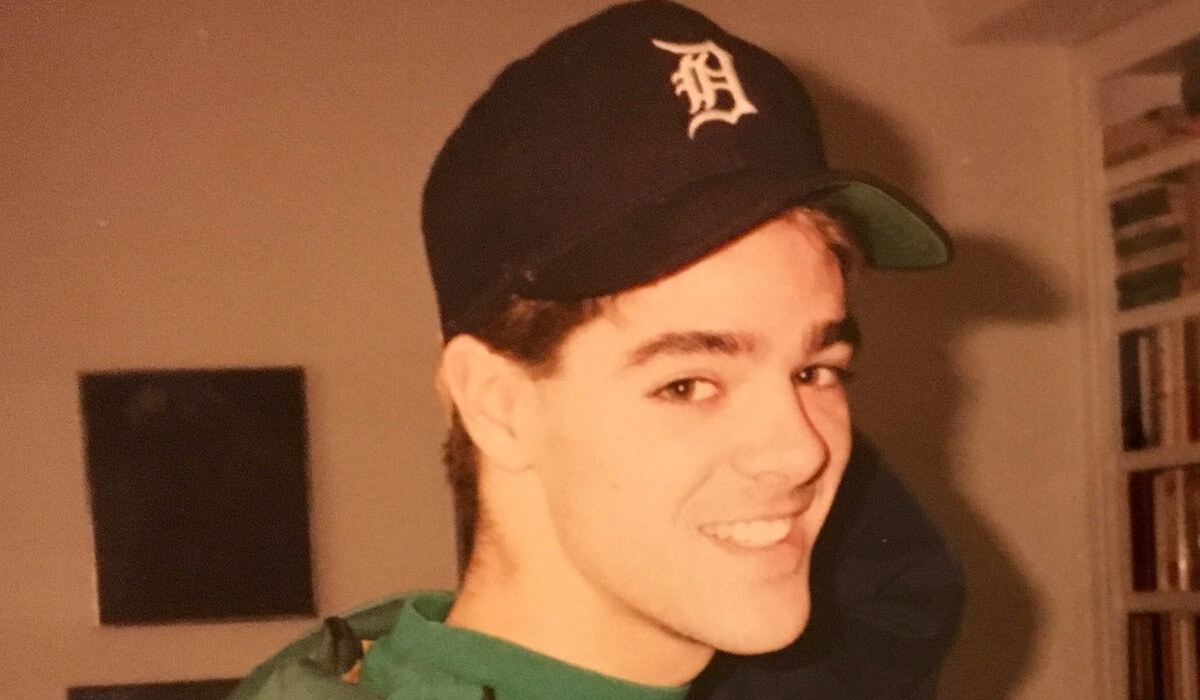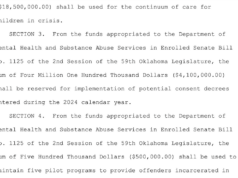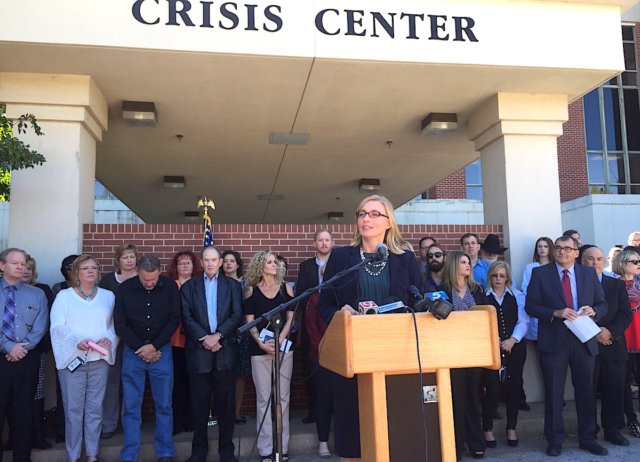

Although 100 people stood outside the Oklahoma Department of Mental Health and Substance Abuse Services prior to Wednesday’s press conference, the air was eerily silent.
If you’ve ever been to a funeral, you would have grasped the mood. Oklahoma’s commissioner of mental health, Terri White, was about to take the podium, announcing to the public what will happen if the Legislature fails to produce a budget fix before Nov. 1: The state mental health agency will prepare to cut its budget 46 percent for the second half of this fiscal year.
“We have no choice but to begin talking about what the implementation of $75 million in cuts look like. (…) They will decimate our state’s mental health system,” White said. “None of us want [this] to happen.”
I knew I did not.
Full disclosure: I teach Mental Health First Aid
I intentionally avoid writing about mental health on NonDoc as much as I can. The last thing I published even remotely on the topic was an obituary for a colleague who had completed suicide, functionally losing his battle with bipolar disorder. I cried a lot and felt guilty for not reaching out to him a few weeks prior when he had crossed my mind — a professional failure on two fronts.
RELATED
Beyond Shadow: In memory of Paul Fairchild by William W. Savage III
As a nationally certified Mental Health First Aid instructor who has traveled Oklahoma training lay people and professionals in the life-saving program, I experience hundreds of stories that I only re-tell wearing something other than my journalist hat. Wednesday, for instance, was not my first visit to a crisis center.
Call it an ethical quandary or a self-serving $300-per-class paycheck, it doesn’t really matter.
In the end, I am fortunate to have trained nearly 1,000 Oklahomans in evidence-based strategies that prevent suicide, de-escalate crises and break down the stigma surrounding mental health care.
ODMHSAS has funded roughly one-third of the classes I have ever taught. Consider this full disclosure and an explanation of why I’m writing this as a first-person commentary, although White told me the agency’s prevention-program dollars are mostly federal, meaning the scenario outlined Wednesday would not affect Oklahoma’s state-funded suicide-prevention programs.
Oklahomans are ‘the only people who are losing’
In short, eight-hour Mental Health First Aid classes teach people to ask the question about suicide, listen nonjudgmentally, give reassurance and encourage appropriate professional help (aka counseling and therapy from licensed providers). One of my key instructions for students is to recognize “the nuance of language.” Imagine that.
Wednesday’s press conference required plenty of nuance in reporting. While mental health services have yet to be disrupted, big ships must turn early to change course. You don’t need state certification to see how disruptions of funding can affect agency budgets and, consequently, the availability of mental health treatment.
Still, at Wednesday’s formal warning, a litany of officials spoke for more than an hour, explaining the ramifications of $75 million in ODMHSAS cuts:
- Outpatient services at the state’s four mental health facilities would be eliminated, except for medication provision.
- Reimbursements to about 700 non-profit and for-profit mental health organizations would be stopped.
- PACT interventions would cease.
- Residential treatment for children would also end.
- Drug courts, mental health courts and other court-related efforts would lose funding.
Business owners, chamber of commerce presidents, police officers, the industry’s top hospital administrator and a district attorney all discussed jobs that would be lost and interventions that would no longer be available. Two noted that their family members have benefited from services. Oddly, however, the press conference did not feature any patients telling their stories of recovery.
Among the suit-wearing crowd, the speaker most intriguing to me was new Norman Chamber of Commerce CEO Scott Martin, a former Republican House member who stepped down after session ended in May.
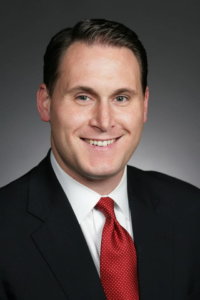
“I would remind you that I voted against the budget because I didn’t feel it did enough to support the people of Oklahoma, for one thing,” Martin told me after the press conference. “Any kind of compromise that is done, no one is going to get everything they want. That has to be expected. We have to get to a point where we don’t care about who wins because the only people who are losing are the people of Oklahoma.”
Martin said he remains hopeful none of the cuts discussed Wednesday will come to fruition.
“I still have faith. Knowing the people that are up there, I’m still confident and hopeful that they can develop a compromise — one that’s not just going to fix today’s problem that was outlined by the Department of Mental Health, but also that is going to fix the problems that we have all across state government,” Martin said.
‘We just got off the streets’
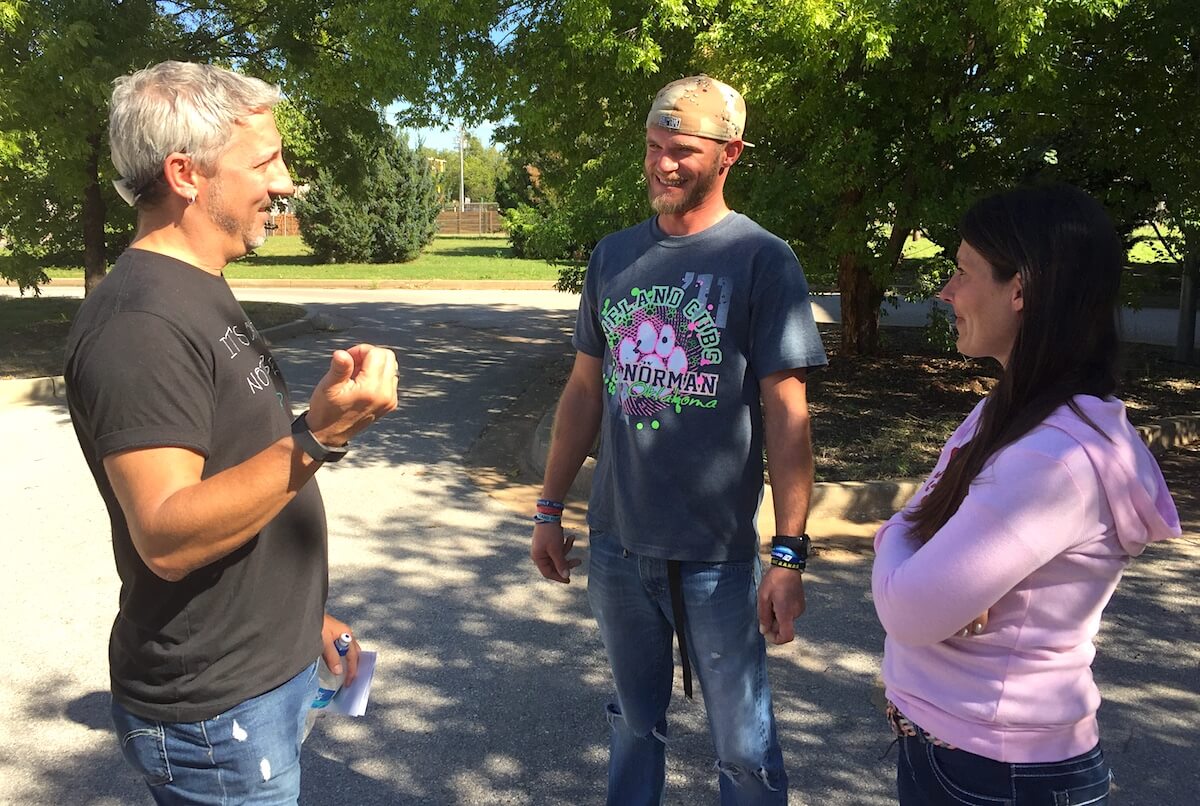
After Martin discussed being “hopeful” for an agreement, I approached a group of people who had watched the presser from the edge of the parking lot. I was seeking more “hope” at the somber scene, and I found it in the form of David Vore.
“I know that I wouldn’t be where I am today if it weren’t for the help I’ve received previously and for the opportunity to help others through ODMHSAS,” said Vore, a certified peer recovery support specialist who works for the Oklahoma Citizen Advocates for Recovery and Transformation Association (OCARTA). “But if you’re looking for help and it’s not out there, now what?”
While I interviewed Vore, another man asked if he could chime in. His name was James Cowan, and he introduced me to his wife, Sheena Myers.
A native of Tuttle, Cowan said Vore approached him months ago at a day center for the homeless.
“We just got off the streets about six months ago — April. What he was doing for us, he was actually our advocate, which encouraged me to become an advocate,” Cowan said. “In the state of mind that I was in with my addiction and also my mental illness, I wasn’t able to fill out paperwork. I never had the urge to go and do all this stuff. If it wasn’t for people like him, I’d probably still be in my tent sleeping because I didn’t have the extra resources or push.”
The four of us talked for another 15 minutes, and in a time when potential cuts to mental health services threaten Oklahoma’s already limited resources, I realize I’m unable to explain the scenario much better than Vore and Cowan can — two men from different parts of the state, previously addicted to different substances and fundamentally committed to helping others receive mental health care.
As a result, I have embedded the audio of our discussion below.
If you listen closely near the beginning, you will hear Vore’s voice tremble and crack while discussing the importance of mental health care.
I can think of 148 people who might want to click play.









